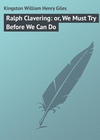Czytaj książkę: «The Circassian Chief: A Romance of Russia», strona 29
Volume Three – Chapter Five
Thaddeus Stanisloff was now perfectly happy. No longer did he hesitate to approach the anderoon, and no longer did Ina fear to meet him; her ear was ever intent to catch his approaching footstep, when, in spite of old Kahija’s frowns, she would start up, and hasten to the gate of the enclosure, for within those sacred precincts, no man dares venture to approach.
She did not, however, stop to analyse very clearly her own feelings; but they were so novel, so delightful, so pure, she could not help indulging in them. Thaddeus loved Ina, with the most ardent, tender attachment; and often did he anticipate a life of happiness, passed in her society, amidst the vales and mountains of Circassian when he would teach her the love, religion, and the customs of civilised Europe, and eagerly did she listen to these discourses of her gallant preserver.
Still they had not yet talked of love; yet, much did he long to speak in the language of confidence, unrestrained by the presence of the gentle Zara, or the young Conrin.
Early one morning, he met his mistress at the gate of the anderoon, fortunately before old Kahija had made her appearance; seizing the opportunity —
“Ina,” said he, “I have much of deep and earnest import to communicate; and I would not, that other ears than yours, should listen. Will you deign to meet me then, and hear my words, for here I cannot speak them? Ere the sun has set this evening, will you meet me, Ina, in the sacred grove, near the ruins, over whose shattered fragments the Cross still rears its head triumphant?”
“Stranger,” answered Ina, “you are my brother’s trusted friend. I know too from your brave and generous nature, that you would not seek aught from me, that is unbecoming a maiden’s modesty.”
“Believe me, you will do no wrong in trusting me. I’ll wait until you can steal from old Kahija’s vigilance. Your page can see you safe, and watch the while we speak, that none intrude. Do you consent, lady?”
“I will meet you, noble stranger,” answered Ina, with timidity, and blushing as she spoke. “I know that you will guard me from danger.”
“Thanks, Ina, thanks, for your confidence; my life shall answer for your safety!”
Thaddeus might, perhaps, at that time have found an opportunity of letting Ina fully understand his devoted love for her; when they were interrupted by the coming of the discreet old Kahija, who considered that the conversation had already endured beyond the bounds of decorum. He was most unwillingly, therefore, obliged to retire, and to pass away the hours in thinking of his mistress; until the old nurse should have gone to the Mosque for evening prayer, when Ina would meet him.
The spot Thaddeus had selected, was a beautiful grove situated a little way up the mountain side, which, from time immemorial, had been looked on with veneration, by the inhabitants; because there, according to tradition, their ancestors had formerly worshipped the Great Spirit, and his Son who once visited earth. In his wanderings, Thaddeus had discovered the ruins he mentioned, which were those of a church of considerable size, as appeared by the fragments, still remaining scattered here and there, among the herbage; but many years must have passed since it was reduced to its present state, from the large trees growing amidst the stones.
The foot of the cross itself, formed from two large blocks, had been deeply imbedded in a rock, projecting from the mountain’s side. Over the sacred emblem, the trees had formed a sheltering arbour, its existence there being a fit symbol of the Christian religion, standing on the rock amid the ruin and decay even of its own temples and rites.
To this spot resorted those, who would ask some special favour of the mighty spirit they worshipped; but, ignorant of him who had chosen it as his emblem, they would fall down in adoration before it; many believing that the spirit himself dwelt within it, and that the stone retained hidden virtues. It was also considered as a sanctuary, which none would dare to violate. Any one followed by his most deadly enemy, who could reach it, might cling to its support and there be safe from vengeance. Even those professing Islamism still held it in veneration. Chaplets of flowers, the votive offerings of the worshippers, were hung on the surrounding trees until they withered away.
Thaddeus eagerly hastened to the spot, long ere the time he might expect the coming of his mistress; but he wished to be alone in that sacred place to commune with himself, to dwell upon the anticipation of his bliss should his hopes of her answer be fulfilled. He wandered round the ruins of the once sacred pile; sometimes he feared she could not really love him, and a moment afterwards he felt confident of winning her. Then he threw himself beneath the shade of some tree, and anxiously watched the lengthening shadows; and next he would rise and hasten through the grove, towards the direction whence his mistress should come; but he saw her not. The sun had not yet sunk low enough in the heavens, and he regretted that he had not persuaded her to come at an earlier hour. He again returned, lest, perhaps, she might have passed some other way.
Inspired by the solemnity of the spot, he threw himself down before the cross, and offered up his thanksgiving to heaven for his own preservation, and his prayers for future blessings. Deeply absorbed in his devotions, he thought not of the lapse of time; and, as he rose and gazed eagerly around to see if Ina was near, the sun had reached the edge of the mountain, tinging its sides with a saffron hue, and throwing a deep shade at its base. The minutes now passed like hours; he feared something might have prevented her coming; some accident might have befallen her; he thought of the revenge of the Khan and trembled for her safety.
As despair was about taking possession of him, at length, his heart bounded as he caught sight of her, moving amid the trees like some benign spirit of the groves. At a little distance from her, followed Conrin, slowly and mournfully; who, on seeing Thaddeus, turned aside.
The young lover hastened forward to meet his mistress; he gently took her hand, which she did not withdraw, as he led her to a seat, formed of a broken architrave, beneath the cross. For some minutes neither spoke, as they sat gazing on the rich and smiling valley below them, which was clothed with a soft mellow light; a serene and solemn silence reigned over the whole scene. The lovers felt perfect happiness; they feared to speak, lest a word might break the soft enchantment.
Thaddeus turned to Ina, and, gazing on her eyes, so liquid and tender, yet so lustrous, he saw an expression there which gave him courage to speak. “Ina,” he said, “I came to this land a stranger among your people. All my hopes in life were blighted. I had been an imprisoned felon, condemned to death, every instant expecting to die by the hands of my comrades, but was rescued by your brother’s bravery. To him I owe all I now possess: I owe him my life, and – more far more than life – the happiness of seeing you. From the moment I saw you, I loved you; from that moment your image has never been absent from my thoughts. In the ardour of the chase, in the solitude of the night, I have thought alone of you; and oh! the rapture, when I found you were saved from the ruffian who would have torn you from me! Sweetest Ina, I love you!”
Ina gazed at him. A sweet smile irradiated her features; her eyes sparkled with animation.
“Is it possible?” she said, with an inquiring look. “That you, Thaddeus, accustomed to the magnificence of the cities, and the accomplished beauties of Frangistan, can think of a mountain maid like me, who has never passed her native shores? Perhaps, you spoke but in sport; but no, you would not tamper thus with my heart.”
“Ina, could words alone convince you how ardently I love you, I would speak them,” answered Thaddeus; “but no language has fitting words to express my feelings. I would die to save you from harm. Dearest Ina, can you love me?”
“Love you? Blessed joy! oh yes! Perhaps, I do not love you as I ought; still I would not that any arm but yours should have saved me from him that would have torn me from you. Do you think I love you now?”
“Yes, dearest,” said her lover, folding her in his arms as her head sank upon his neck. “Yes, Ina, by yonder cross I swear to guard you with my life; to love no other but you.”
“Indeed ’tis bliss to hear you speak such words,” answered the maid. “A short time ago I thought I loved but one – my honoured father; and then, my brother coming, shared my love; but now I feel my heart too small to hold the love I bear for you. The feelings which I bear for those dear ones I would tell to all the world; but what I feel for you is a treasured secret I would tell to none but you.”
“Ina, you are my own,” exclaimed Thaddeus. “Oh never deem that I could share my love for you with any other: the very thought were sacrilege. How ardently have I longed before to say this to you – to learn from your own sweet lips, if you could feel the same for me! But still I feared that I could not be worthy of such love as yours.”
We must no longer attempt to describe the words with which the young Pole told the deep feelings of his heart to the pure and gentle Ina. Side by side they sat, nor thought how fast the hours sped. The sun had long gone down, the stars came out glittering in the dark clear blue sky, and the moon arose in pure and tranquil majesty to witness their guiltless love, throwing her silvery beams through the dark trees of the grove. Yet still they lingered, pouring into each other’s ears the words of soft endearment.
At length they rose from the spot hallowed for ever in their memory, when a gentle step approached, and young Conrin stood before them. Ina thought she heard a sob. He spoke at last in low and hurried tones —
“I came to warn you that night approaches,” he said. “You’ll be sought for anxiously in the hamlet, and great alarm will be felt when you are missed.”
“Ah, is it indeed so late?” said Ina. “I thought we had passed but a few minutes here. We will hasten home.”
“I will guard you to your home, dear Ina!” said Thaddeus, as he supported her steps.
Though both knew that they ought to hasten, yet neither felt any inclination to quicken their pace, as they passed through the sacred grove, and chose, they knew it not, the longest road to the village. They had yet much to say, when they found themselves at the gate of the anderoon. Young Conrin followed slowly, and again they heard that half-stifled sob; but he sought to avoid their observation.
They stopped at the gate to whisper many more endearing words; and perhaps they might have spent another hour, fancying it but a minute, had they not been startled by the harsh sounds of Kahija’s voice, who had bustled out in no sweet temper at the long absence of her young charge.
“Truly, these are pretty doings for a maiden, to be staying from home at this late hour. What would have been said, had any of the inmates of old Mustapha’s harem, at Stamboul, taken it into their silly heads to wander about in this way? They would soon have found themselves at the bottom of the Bosphorus, I warrant. That is the way young ladies are treated, who misbehave themselves in the only civilised country in the world – and a very proper way too. A pretty example you set my young lady, Zara. I suppose that she, who has always been so correct – thanks to my instructions – will take it into her head next, to go gadding about in the same way. But, I’ll take care she does no such thing I’ll promise her. I hope to see the free manners of the girls, of this country, reformed before I die. It’s quite dreadful, scandalous, to see them wandering about in this independent manner, with their veils thrown off their faces to let everybody stare at them who likes. Come, Sir,” she said, turning to Thaddeus; “I wonder you stay here. I thought you knew that the anderoon was forbidden ground to any man but my lord. I should think you had enough of my lady’s company already.”
But Thaddeus felt no inclination to move without speaking a word more of farewell; and old Kahija, having vented some of her wrath; and not being, in reality, ill-natured; saw it was useless opposing an affair, which was, indeed, no business of hers. She therefore turned away for a few minutes, during which time Thaddeus snatched a parting embrace from his mistress, drawing a promise from her to meet him again on the next day.
When the old nurse returned, the intruder, much to her satisfaction, was gone. Ina then entered the anderoon, when Zara, throwing aside the embroidery she was engaged on, sprang forward to meet her.
“Dear Ina,” she exclaimed, “I feared some other danger had befallen you, that you returned not before.”
“No danger could happen to me where I went,” answered Ina; “I was safe from every harm. So lovely an evening to wander out!” she added, with a little pardonable deceit. “I wonder you can bear to be so shut up.”
“I, too, should like to wander out to breathe the air of evening,” answered Zara; “but old Kahija will not hear of it.”
“What is that you say?” said the old nurse entering. “What! are you trying to teach Zara to follow your own wild customs? But you will not succeed; she is too good a girl to wish to do any thing of the sort. When she marries young Alp Beg, she may do what she can; but she will be shut up close enough then; and so will you, Ina, if you marry a true believer, instead of one of these heathen countrymen of ours.”
Happy were the slumbers of Ina that night as she laid her face upon her pillow. She dreamed that again she trod the sacred grove with him she loved – that again she heard his voice speaking those magic words which changed her very being – she felt the pressure of his hand in hers – and she saw the moon rise amidst the trees, the witness of their love.
Volume Three – Chapter Six
Perfect tranquillity reigned in the valley of Abran Bashi, far removed from the loud tocsin of war which hung round the borders, though news occasionally arrived of skirmishes with the Moscov, and sometimes a wounded warrior would come to be recovered by the care of his family.
At times, too, wailing and weeping was heard, when a family received intelligence of some dear relation having fallen in the fight; or a sad train would pass through the valley, accompanying the corpse of some noble, borne on his war-steed, who had lost his life in one of the many useless attacks which were at that time made on the Russian lines; more for bravado, and for the sake of exhibiting bravery and fearlessness of consequences – the characteristic of the Circassian warrior – than for any advantage to be gained.
Notwithstanding the predictions of the old chief, Thaddeus began to hope that the Khan, Khoros Kaloret, had foregone all farther attempts to carry off Ina; and, being ignorant by what hand his clansman had fallen, he would be unable to fix his revenge on any one. Thus all dread of evil consequences left his mind; and even Ina no longer feared to renew her rambles under his protection beyond even her former limits, though sure of receiving a severe lecture from old Kahija after each transgression.
We have as yet given but a slight sketch of her beautiful friend, the young Zara: she was like a sweet rose-bud, fresh and blooming, ere the first rays of the morning sun have dissipated the crystal dew; a complete child of nature. Brought up in that secluded valley, she knew nought of the world beyond the lofty mountains that surrounded it. Within that spot all her thoughts and hopes had been concentrated; she loved her pure streams, her verdant fields, and her shady groves, and grateful to the kind nature who placed her there; she was happy and contented, and would have felt miserable at the idea of leaving them, undazzled even by old Kahija’s descriptions of the gorgeous Stamboul. Her character was pure as her own sweet face; she seemed formed for love and tenderness alone, unfit to buffet with the cares and troubles of the world. Like a delicate plant, requiring some strong tree round which to entwine its slender tendrils, to gain strength and support from it. Her temper was sweet and amiable to all; and even old Kahija’s lectures failed to ruffle her. Dutiful and obedient to her only remaining parent, she tended him in sickness with the most gentle and unremitting care; and dearly in return did the old chief love his little Zara.
Her features were soft and feminine as her character; she was beautifully fair; her delicate auburn locks hung over her swan-like neck in rich profusion, her large eyes of purest blue were shaded by dark lashes, adding to their tender and languishing glance, while a smile playing round her ruby lips, betokened a happy and contented heart. Her figure, though equally graceful, was shorter and fuller than her friend’s; but none could deem it otherwise than perfect.
Such seemed the fair young being who had bestowed all her pure and warm affections on the gallant and youthful warrior, Alp Beg, and truly did he prize the treasured girl he had won.
He had been loved from his childhood by her grandfather for his courage and activity in all manly sports, and now gladly did the old chief accord his sanction to their union, which he had arranged with the Hadji before his departure for the camp. As yet the fair girl knew not that her hopes were to be fulfilled, for though Alp had found time to whisper his love, neither knew that their parents would give their sanction to their marriage; and often would sad forebodings for the future cross her otherwise tranquil mind, fears that their union might be forbid, or that he might be snatched from her by the cruel Urus.
The two fair girls were seated on an ottoman in the anderoon, while Ina worked a belt with golden thread, her first gift to Thaddeus. Zara struck the cords of her lute.
How sweet and thrilling was her voice, as she sang the following simple ballad: —
The sun shone like glittering gold on the lake,
While softly the breeze through the green forest play’d;
The birds sang their gay notes from rock and from brake,
And sweet odours sprung from each flowery glade;
There was heard too a fountain’s light murmuring voice,
And nature in smiles seemed with glee to rejoice.
Though nature was smiling, yet sorrow was nigh,
For near a pure stream, ’neath a green willow’s shade,
With her quick panting bosom, a bright weeping eye,
There stood, trembling with fear, a fair Attèghèi maid,
As a gallant youth, pressing her form in his arms,
Sought, with love’s parting kisses, to calm her alarms.
Mid the clustering forest his charger stood near.
And, his streaming mane tossing, was stamping the ground;
His squire was holding his buckler and spear,
While from far off came booming the cannon’s deep sound.
One more agonised pang, and he tore him away,
And mounted his war-steed to join the affray,
But as slowly he rode through the green leafy wood,
With a lingering pace he oft turned his fond gaze,
To cast one more glance where his lov’d maiden stood,
Till soon she was hid by the thick forest maze;
Then, spurring his charger with speed o’er the lee,
Soon with fear did the foemen his dancing crest see.
Like the willow which gracefully bent o’er the stream.
The maiden stood tremb’ling and drooping with grief,
Like the dew of the morn did those precious drops seem,
When the bright sun-beams play on the spark’ling green leaf.
Ah! cruel the war that could make her thus mourn!
Ah! sad ’twas to leave that sweet maiden forlorn!
Then rising, she clomb o’er the mountain so high,
And she look’d o’er the hill and she look’d down the vale;
Saw joyous in fancy his gay banner fly,
When her ear caught the sound of a funeral wail.
Through the glen, as advancing with mournful slow tread,
A train bore the bier of a warrior dead.
Then fearful and fleet as the chas’d deer she flew,
Down the steep mountain’s side, over chasm and brake.
For well the bright arms of her hero she knew;
Not the whirlwind’s swift course could her flight overtake.
Then she threw herself down her slain lover beside;
She sigh’d not, she wept not, but heart-broken died.
As she finished, tears stood in her eyes, and her voice trembled at the last lines.
“Why sing you that mournful ditty, dear Zara?” said her friend. “It is too sad for one, whose eye sorrow has not dimmed, to sing.”
“I know not why I sing it,” answered Zara; “but I could not help it, the words came flowing to my lips.”
“Who taught you so sad an air?” asked Ina.
“A venerable bard who travelled once this way. His steps were feeble, and his locks were blanched with years, and, as he rested at our house he sang this air, gazing sorrowfully at my face, and made me learn these words, I know not why. He went his way, nor ever have I seen him since: but still, at times, a sadness comes upon me, and I sing this song.”
A deep-drawn sob was heard from the corner of the apartment where the young Conrin had thrown himself on a divan.
“Come hither, Conrin,” said Ina, in tones of kindness. He had been weeping; for his eyes were red and his features wore an air of sadness.
“Why do you weep, dear Conrin? What makes you thus sorrowful?”
“Sad thoughts and feelings,” answered the page. “I have much to make me weep: but it was that song overcame me. I wept for the sad forebodings that it brought upon my soul, for myself I care not, but for those I have learned to love.”
“What causes have you for grief, dear boy?” said Ina. “Are you not happy here, where all so love you?”
“I cannot tell you, lady,” answered the page.
“Why not tell me your grief? Perchance, confiding it to me, I may aid to mitigate it,” said Ina.
“Oh no, it is impossible; my grief is too deep for consolation; it is a secret I shall never tell,” answered the page.
“But, I may find a means to soothe it,” urged Ina.
“Lady, pray deem me not ungrateful; but again, I beseech you, let me leave you,” exclaimed Conrin. “I love you much; but yet, I love your noble brother more. The only balm you can give to soothe me is to let me go to him.”
“But, why would you leave this calm retreat to hasten amidst scenes of war and bloodshed?” said Ina.
“I would go to my master, wherever he may be, lady,” answered Conrin. “I fear some danger threatens him; I know not what, but dark forebodings steal across my soul. I cannot look upon the future as I used to do, hoping for days of brightness and joy; my heart no longer bounds as it was wont, with thoughts of happiness. Oh let me seek my master, that I may guard him from the threatened harm, if still I may! I would too, gaze upon his loved features once again before I die, for too surely do I feel the troubled inward spirit preparing for its flight to quit this world. I feel that nothing can avert my death, come how it may.”
“Boy, you speak of strange, mysterious things,” exclaimed Ina, in an alarmed tone. “Why think you danger threatens my dear brother? and why these sad forebodings of your own fate?”
“Lady, I come of a race who oft see things hidden from duller eyes; and once, it is said, our ancestors could foretell either the death of mortals, or their destiny; but the power has passed away, as we have mixed our blood with other tribes. Yet, even now, we often see the shadow of a coming evil; and it is a curse upon our race, that we cannot guard against it when it threatens ourselves. For others yet we may, and thus I would attempt to guard my master.”
“Conrin, you persuade me strongly to let you go; and for my dear brother’s sake I will, though I should be loath to part from you. Oh, shield him, if you can, from danger, and may Allah bless you!”
“Thanks, lady, thanks! Even now my spirits lighten of their load,” exclaimed Conrin. “I would set off this day; another may be too late.”
“You cannot journey alone, on that road, dear page,” said Ina; “you shall accompany the first band of warriors who set forward for the camp.”
“Oh, I would find my way alone, through every obstacle, to meet your noble brother,” said the boy, eagerly.
“Conrin, that cannot be; you know not half the dangers which would beset you on the road. To-morrow, perhaps, some warriors may go forth. You said you had a secret that you would not tell; but let me hear it; for much do I love you, for the affection which you bear my brother; and much it pains my heart to think that yours must bleed without a sympathising friend, to soothe your pain. Ah! how blind I have been! a thought has opened now my eyes. Come hither; let me whisper to your ear.”
The gentle Ina bent over her page’s head. A deep blush suffused the boy’s cheeks; his eyes filled with tears.
“Ah! it is so? Let me weep with you,” she cried. “But, be of good hope, all may yet be well. Such love as yours cannot go unrequited.”
Old Kahija was certain to intrude when she was least wanted; and at that instant she made her appearance, hobbling in, for she was somewhat unwieldy in her gait. Her cheeks almost burst with impatience to communicate some important information.
“Here’s news for you, young ladies, from the camp,” she exclaimed. “Ah, Zara, my pretty maid, you’ll not have to sigh much longer, I am thinking, for the young Alp. Now, girls, what would you give to have the information? Your best earrings, I warrant; but I am not cruel, and will keep you no longer in suspense,” she added, as eager to communicate the news, as the fair inmates of the harem were to hear it. “Know then, my pretty Zara, that our noble chief, your grandfather, has given his sanction for your marriage with young Alp Beg, and in a short time, he will be here to bear you from us.”
“Speak you the words of truth, Kahija?” exclaimed Zara, blushing, but looking perfectly happy, as she threw herself upon Ina’s neck. “Oh, say when he will come?”
“He has sent some one to deliver a message to you; therefore wrap your features closely in a veil, and go out to the gate of the anderoon. And that reminds me there is some one to see you, Conrin, from your master.”
“Ah!” exclaimed the page, hastening to the door. “What joy to hear of him.”
“A messenger from my brother!” cried Ina. “I too, must learn what news he brings.”
At the gates of the anderoon, Conrin found Javis waiting his coming.
“I bring news from our master, for his sister,” said the squire. “In a few days he will be here, and then I must quit his service, if I can return to Russia. I have fulfilled my oath, I have obeyed your wish; no mortal, with a spirit that could feel, would do more.”
“Javis, I owe you much;” exclaimed the page. “I would repay you with my life; but the only reward you prize, alas! I cannot give.”
“I ask for no reward,” answered Javis; “the only one I prize, alas! I cannot gain; and after that, death will be the most welcome. But I would see my people first, and breathe my spirit out amongst them. I have done your bidding. I vowed to do what you wished, nor stipulated for reward. I rescued the young chief from the power of the Russians; I have striven to wash away my thought of crime almost perpetrated; I saw him safely landed on his native shores; I have seen him take his place among his people, as a chieftain of Circassia: I even learned to love him for himself, but more I cannot do. I could not bear to see him again at your side; I must go even from you.”
The conversation was interrupted by the arrival of Ina and Zara.
“Say, when will my brother come?” exclaimed Ina. “Oh, ’twill be joy to see him.”
“In three days hence, if the Russians move not from their encampments,” answered Javis.
“Bring you any message for me?” said Zara, timidly addressing a young warrior, who respectfully saluted her at her approach.
“Yes, lady, I bear a message from my friend, the gallant Alp Beg. Before two days have passed, and ere the shade of yonder lofty tree has reached the stream which flows a short distance from its base, he will be here.”
“You bring me grateful news, indeed. Oh, many thanks!” returned Zara. “Say, is your friend well?”
“Yes, lady, he is well; and bears himself bravely against the foe,” answered the messenger.
“Come, come, maidens,” exclaimed Kahija, bustling up. “It is very incorrect to stop chattering longer than is necessary at the gate of the anderoon. If you have received your messages, come into the house, and let the young men go their way.”
Having no further excuse for remaining, the fair girls were obliged to do as desired, though they would fain have heard more of those so dear to them.




















